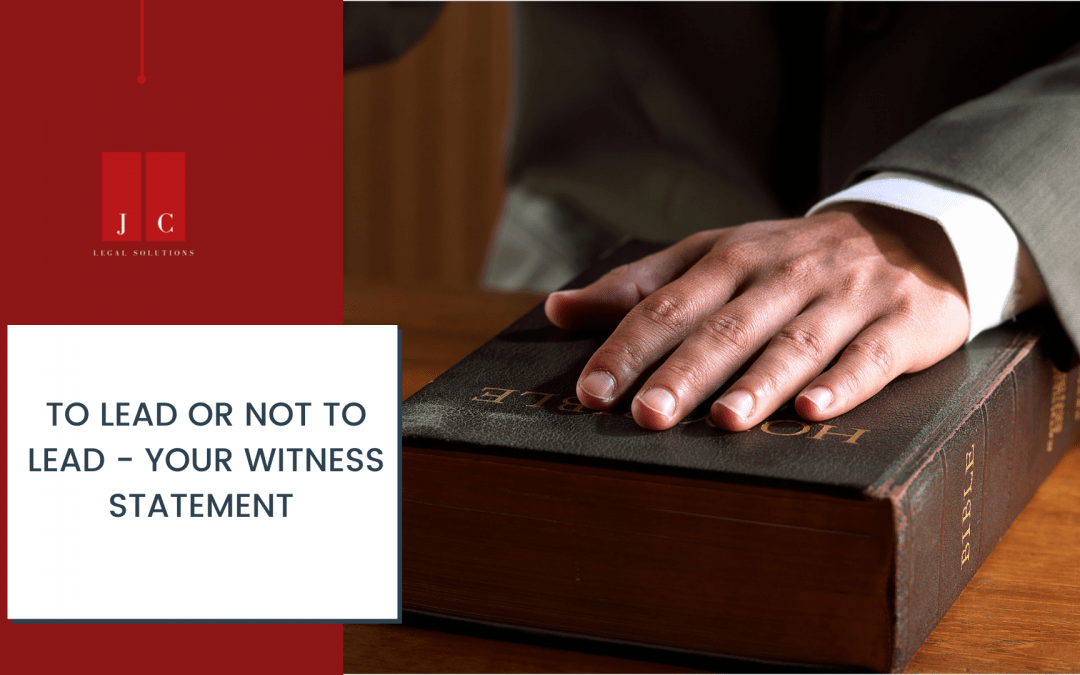Taking a witness statement is never an easy process. Getting on the stand can be nerve-racking, so you want to make sure you have your account ready. This process can also be very emotional depending on the case you are taking the stand for, and it is essential to get the facts straight and not let your emotions cloud your memory of the events.
In some cases, you will not have your lawyer taking your statement. It could be the defence or the prosecutor carrying that out, and you want to make sure you are taking care of yourself. The lawyer taking your statement should allow you to develop your statement in your own words. Why? Because it is your evidence.
You know what happened. You are the witness, not the lawyer. If anything is wrong with your statement, it will be on you, not your lawyer. The problem is lawyers often want to cut to the chase and get straight to the point at issue, and sometimes in their haste, they can ask a series of close questions or, worse still, leading questions.
The problem with this is the lawyer may be suggesting an answer and creating a false memory for you, which you may pick up innocently. It is much better to let the witness tell their story without interruption. If clarification is needed, this can be done afterwards by asking non-leading follow-up questions. Suppose you do end up accidentally committing perjury on the stand, even if it was innocently because of leading questions. In that case, it can create lasting consequences for you, and the lawyer who led you into it will be able to walk away.
Your lawyer should identify areas that need expansion or more precision and say something like ‘tell me a bit more about this area.’ This way, you can stay on the right path for your statement and not stray from the truth of the narrative. Research shows that a more accurate account is given from witnesses in this way rather than from asking a series of closed or leading questions.
Regardless of how frightening it might be to take the stand, it is crucial to do so. You might have the piece to the puzzle that could hold to the truth of the matter, and it depends on your statement. If you are worried about committing perjury or need advice on crafting your statement, we recommend that you consult a lawyer that is not related to the case you are speaking on.
At JC Legal Solutions, we can help if you have any questions regarding your statement or the case in general. It is always better to consult with a lawyer than go in blind and potentially commit a crime in the process.
At JC Legal Solutions, we are a firm that puts PEOPLE first. Please contact us today for a free consultation.
